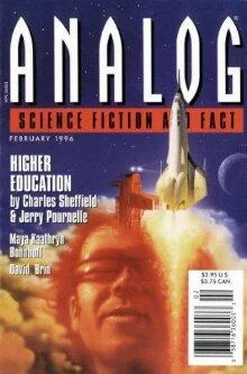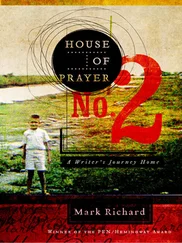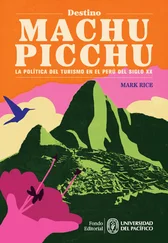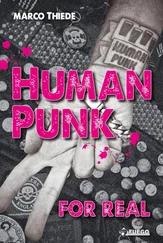Mark Rich - Human Lives Saved
Здесь есть возможность читать онлайн «Mark Rich - Human Lives Saved» весь текст электронной книги совершенно бесплатно (целиком полную версию без сокращений). В некоторых случаях можно слушать аудио, скачать через торрент в формате fb2 и присутствует краткое содержание. Год выпуска: 1996, Издательство: Dell Magazines, Жанр: Фантастика и фэнтези, на английском языке. Описание произведения, (предисловие) а так же отзывы посетителей доступны на портале библиотеки ЛибКат.
- Название:Human Lives Saved
- Автор:
- Издательство:Dell Magazines
- Жанр:
- Год:1996
- ISBN:нет данных
- Рейтинг книги:5 / 5. Голосов: 1
-
Избранное:Добавить в избранное
- Отзывы:
-
Ваша оценка:
- 100
- 1
- 2
- 3
- 4
- 5
Human Lives Saved: краткое содержание, описание и аннотация
Предлагаем к чтению аннотацию, описание, краткое содержание или предисловие (зависит от того, что написал сам автор книги «Human Lives Saved»). Если вы не нашли необходимую информацию о книге — напишите в комментариях, мы постараемся отыскать её.
Human Lives Saved — читать онлайн бесплатно полную книгу (весь текст) целиком
Ниже представлен текст книги, разбитый по страницам. Система сохранения места последней прочитанной страницы, позволяет с удобством читать онлайн бесплатно книгу «Human Lives Saved», без необходимости каждый раз заново искать на чём Вы остановились. Поставьте закладку, и сможете в любой момент перейти на страницу, на которой закончили чтение.
Интервал:
Закладка:
“It isn’t our central concern as a society!”
“Who’s to say it isn’t?” I said. “What we intend is different from what emerges from our efforts. Emergent phenomena are never the projects of intention. There’s nothing teleological about it.”
Joe looked at me suspiciously. “So you’re saying we should just go blindly into this, because it’s going to happen anyway? Because society’s pointed that way?”
“Not really. I’m saying we do have to take responsibility. Especially if it’s given to us to be the ones responsible. Look at it this way. Who’s going to be most responsible about something that needs responsibility? Someone who knows the difficulties? Or someone who goes into it completely blindly? Well, obviously, the one who knows the difficulties! Someone who can think about the future, maybe even someone who fears the future and knows to guard against what can go wrong!”
That left him silent. I wondered how far to go.
Then I wondered if I could afford to stop before pushing the point all the way.
“I guess,” I said, “I’m also talking about us. Us, as individuals. And that other responsibility, the one to ourselves. We’re extremely particular products of society, with extremely particular abilities and talents—and none of us are destined to do anything—but we re faced with a choice: do we use our talents and visions, or don’t we. If we do, we act as fully human as we can be: because we’re participating in what it is for us, as individuals, to be human. If we do, we accept responsibility! If we don’t, aren’t we rejecting—”
“Oh, man,” Joe said, burying his face in his hands, rubbing his eyes, then seeing his beer and remembering to drink. He drank it all. “Man, you’ve been around Robert too long.”
I laughed. “I was just thinking the same thing about Tony,” I said, or tried to, against the choking in my throat—choking, because it registered, this new change in Joe: for when he said this, he nearly smiled.
He wanted back on the project. I knew this now, with a certainty that surprised me. Robert, too, must have known.
“It gets me,” Joe said, “how you think a guy who held a gun up to his dad and then pulled the trigger could help in any way in creating a good electronic human.”
“Yeah,” I said, “but look who else Robert has on his project—that same dad who grew jealous of his son, got enraged that his son was finding the outlets he himself lacked—the usefulness that he himself lacked— and then beat his own kid—beat the crap out of him! Beat him to the point the kid stole his gun—and used it!”
“Yeah,” he said, nodding. “Oh boy. Yeah.”
We sat for a while after that.
Then we stopped sitting.
We both shook with nerves, getting off the bar stools.
So damned hard, making up for years of absence in the embrace of a moment.
Nearly cracked each other’s spines.
Afterwards we needed more beers, to replenish liquids.
Joe tossed me a clean countertop rag to make me stop using my sleeves.
“You’ve never told me,” I said, when I could, “who it was backed you for this joint.”
He looked around the bar, as if seeing it for the first time. “It was him, you know. Robert. Robert put up the money.”
Robert Means had put Joe where he would be forced to grapple with other human lives, while grappling with his own. A place and time enough to learn yet another language: human interface.
Should have guessed.
No one has cataloged all the terrors of the mind, although most of us start lists of our own.
Mine begins with memory: there I have stored myself, my actions, and my reactions to others: and there, in a museum dedicated to the prehistory to my Now, I see within a glass cabinet the visage and body of a man I have been, however much I must struggle to believe this lineage and descent; and the man I see stands stoutly, with a grimace of surprise, and with a hand reaching to clasp his side, where the red badge of the bullet-wound spreads; and beneath him, near the glass, in neat letters, a sign reads, “Here there be monsters.”
To be human means to be in possession of a physical body of chemical and electrical nature over which one has partial, never complete, control, as well as a mental “body”; and it means one suffers through periods when the ability to control even the mental portion slips too easily from grasp. At such moments one can become saint or monster—for some saints are made unwillingly, just as some monsters. I know which 1 became, after being nurtured by neglect, by the perceived hatred of my society that turned to self-hatred, by the self-inflicted misuses of mind and, consequently, body, which I achieved by abandoning talents I deeply knew to lie within me but out of reach. 1 knew no function to attach to my existence; and 1 became monstrous. I did violence to my son, hideously, with tortures of body and psyche, raining blows by cruel hand or word. I beat him, for he became what I most hated—the image of what I should have been: a human engaged in self-building.
Human means self-maker. We require constant self-construction; otherwise self-destruction sets in. I proved it for myself by setting into motion the series of events that ended with that piece of lead burning through my flesh, near enough my spine to give me pause even now.
I pressed no charges. I offered myself as the criminal; and when they heard the facts, police and court agreed.
Now the two of us wounded humans are at work creating a third wounded human: for we do think, all of us, that what we create will be human; and we believe we must wound it, through blindness or insensitivity or stupidity, or all three.
How can we help it? How can we not be blind when we advance into the never-seen?
Yet can we let blindness stop us?
Many of the thinkers and computational modelers and systems developers upon whose work we base ours see little difference in essential nature between the process of learning within the mind, cell development, individual adaptation to environment, corporate survival, and species evolution; and specialists in those disciplines tell us incontrovertibly that nothing—no mind, no cell, no corporation, no species, no genus, no system —reaches equilibrium. All systems consist of imperfect hands reaching for what cannot be reached. Can we be any different? Would it not be an even greater form of hubris than the hubris we embrace now, if we were to sit awaiting own perfection, awaiting the time we have self-built ourselves perfectly, before daring to attempt to build another? I say it would be. It would consist of the greatest hubris of all. Robert, and the rest of the team, believe likewise. Even Joe finally sees it that way.
Do any parents await the achievement of their own perfection before trying to create the perfection of a child?
Throwing ourselves into this project: it is our way of reaching.
I still think often of my bullet wound. I must. Sometimes I feel it as if it remains a physical passage ripped through me. A perpetual wound.
I think then of Joe, whom I clearly remember turning from the wall where I had driven him; I remember seeing the glow of knowing in his eyes, and seeing the muzzle of my own gun. I remember it clearly: for it pointed at my heart.
I thought: The little buzzard’s going to kill me!
Yet a moment before the flash and burn and screeching pain hit me, he carefully and steadily lowered the muzzle from my chest so the bullet struck my midriff.
Joe in his own way—I hate to put it this way, recalling as I do the aching and soul-searing pain —but in his own way he was engaging in Robert’s practice of saving human lives: his, mine, and possibly someone else’s, too, though he could hardly have guessed that this new life taking form beneath our hands, our gazes, our minds, is a new potential that will reach to realize itself, exactly as would another human being.
Читать дальшеИнтервал:
Закладка:
Похожие книги на «Human Lives Saved»
Представляем Вашему вниманию похожие книги на «Human Lives Saved» списком для выбора. Мы отобрали схожую по названию и смыслу литературу в надежде предоставить читателям больше вариантов отыскать новые, интересные, ещё непрочитанные произведения.
Обсуждение, отзывы о книге «Human Lives Saved» и просто собственные мнения читателей. Оставьте ваши комментарии, напишите, что Вы думаете о произведении, его смысле или главных героях. Укажите что конкретно понравилось, а что нет, и почему Вы так считаете.












